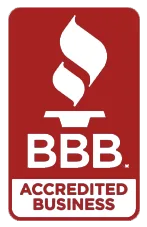How To Manage a Rental Property
Renting out a property can be one of the best and most reliable ways to increase your net worth, and it can be even more rewarding when you manage your property by yourself. Fortunately, you don’t need a lot of expertise to do this. But to successfully manage rental property you must be willing to put in a certain amount of thought, planning, time and effort.
Renting out a property can be one of the best and most reliable ways to increase your net worth, and it can be even more rewarding when you manage your property by yourself. Fortunately, you don’t need a lot of expertise to do this. But to successfully manage rental property you must be willing to put in a certain amount of thought, planning, time and effort.
The good news is that getting your rental property squared away and operating smoothly in the early years of ownership means that you will be able to spend less time managing your rental property in the future.
How Do I Manage My Own Rental Property?
There are several key tasks you must repeatedly handle to successfully manage your own rental property.
Finding high quality tenants.
When trying to manage rental property successfully, there is nothing worse than renting to a nuisance or even dangerous tenant. No one does this intentionally. So the goal is finding ways to weed out unsuitable applicants and zero in on the desirable ones.
The first step in finding high quality tenants is to advertise in places where they are likely to look for property to rent. This includes:
- Posting an attractive sign outside the rental property you are managing.
- Advertising in reputable media, such as the Multiple Listing Service (to do this you may need to work with a Realtor, if you don’t have your own license), and others.
As inquiries about your rental property come in, the second step is to ask the correct questions (and verify the answers) about each potential applicant:
- How much income do they have, and the source(s)?
- How many times have they moved in the past (and if it’s often, why)?
- What is their credit rating (and if it’s low, why)?
If all these answers seem acceptable, you’ll want to ask the applicant’s most recent property manager about them:
- Did they pay the rent on time?
- Did they cause disturbances or other problems?
- Did they leave on good terms, giving adequate notice?
- Would the property manager rent to them again?
If everything checks out, you can move on to:
How Do I Negotiate Safe and Secure Leases?
Unless you’re renting unique property or facing unusual circumstances, there are many standard leases available on Internet websites, such as https://eforms.com/rental/.
Although signing such agreements involves a certain amount of negotiating, most of this discussion will center on the rental amount, the start date, and the term of the lease. It’s probably not wise to give too much ground on the standard “boilerplate” terms of such leases, as they are designed to protect you in the event you rent to an unsuitable tenant or encounter other unforeseen circumstances.
How Do I Maintain a Safe and Habitable Property?
With your property rented to suitable tenants, your obligations to maintain a safe, habitable property take hold. This means you must:
- Maintain working smoke and carbon monoxide detectors.
- Provide hot and cold water, and heat.
- Maintain required safety equipment like fire extinguishers.
- Eliminate all lead-based paint.
- Eliminate any mold, rodents, roaches or bed bugs.
- Offer prompt repair services on the amenities you provide.
Unless you are capable and enjoy working with tools, you’ll want to build a cadre of reliable, expert repair people (whether individuals or companies) to call on when problems occur.
You’ll want to establish relationships with two or more in each category:
- Appliance repair
- Cleaning (exterior and possibly interior)
- Electrical
- Elevator (as necessary)
- General repairs
- Fire safety
- HVAC
- Landscaping
- Laundry services (as necessary)
- Locksmithing
- Painting
- Pest control
- Plumbing
- Pool work (as necessary)
- Tile work
With two vendors in each category, if one fails you when needed, you have another already in place to quickly take care of the problem.
In addition to fixing problems as they occur, you’ll want to make sure you or your vendors regularly inspect the property to spot problems in their earliest stages, and to maintain the property at the level your tenants expect. Naturally, tenants who pay larger rents expect higher maintenance standards and faster service, so you’ll want to be sure you keep your rental property in a condition that’s satisfactory to them.
How Do I Keep Rental Property Records and Accounts?
As the owner of rental property, you must be meticulous in your record keeping, not only to save time and effort as you go about your property management activities, but also to document that you’ve fulfilled all your legal obligations to your tenants.
To begin, develop a filing system for all the documents related to each of your rental properties, including such items as:
- Leases
- Insurance policies
- Ownership papers
- Mortgage and other loan papers
- Tax filings and payments
- Maintenance and repair activities, invoices, and payments
- Financial records
- Other regulatory paperwork
It’s best to keep a separate bank account for each property, and to deposit all income and pay all bills related to a property using its own account. For both legal and tax purposes, try not to pay for purely personal items from property accounts. Instead, transfer money – which counts as personal income – to your personal account, and then use it to pay your personal bills.
Consult your lawyer and accountant to determine whether you want a property to be owned personally by you, or by a unique legal entity. This is an important choice, so explore it in detail before you decide.
How to Manage a Rental Property Remotely
In some cases, you may want to own and manage rental property that’s quite a distance from your home turf. This presents interesting opportunities, such as access to more desirable locations and the potential for rents significantly higher than you can get near home. But it also involves some special difficulties.
For example, you may not know the real estate market in the rental property’s location. This may make it harder for you to ask for and obtain the most lucrative rents, to perform routine inspections, to obtain cost-effective maintenance and repair, to find and negotiate with tenants, and so forth.
But you can still manage rental property remotely without too much extra trouble.
First, be a little pickier in selecting the remote property to buy. You may be able to successfully manage marginal properties when they are close to where you live and work. But when the property is located at a considerable distance, you want a high-quality property in a great location with a lot of “curb appeal” and desirable amenities. This will make it far easier for you to find acceptable tenants and collect lucrative rents.
Second, find a local real estate agent to help you find and screen tenants. This is a help for residential, commercial, and retail rental property, but almost a requirement for vacation rental property – where tenants are invariably short-termers and you need a steady flow of applicants in order to keep your property fully occupied.
Third, work hard to identify and keep in touch with suitable maintenance and repair people in your rental property’s locale. Once you have a good team lined up, property upkeep will become much easier and less expensive.
Alternatively, you might prefer a home warranty plan that works like an insurance policy: you pay the premium and deductibles for each needed repair, and the company selling you the policy takes care of providing the repair people when and as needed.
How to Manage a Vacation Rental Property
Vacation rental property is a special case of remote rental property, in that you will need to find a steady flow of tenants to keep it fully occupied, and you will need to keep it very well maintained – often including linen and cleaning services for tenants – to make it super attractive for people who do not want to handle such chores while on vacation.
How Many Hours A Week Does It Take to Manage Rental Property?
The exact number of hours you must work to manage a rental property depends on many factors, including the number of tenants who occupy it, the amenities it offers – pools and spas, for example, require extra effort and involve extra costs, as do exercise facilities and barbecue grills – and such factors as the potential for problems due to local climate and weather.
Generally, you can estimate that a well-maintained single-family rental property with relatively long-term tenants will require one to five hours of management per month. Properties with problems, or with multiple tenants, and properties where tenants typically stay less than a year, will take more time.
How Can Family Members Help Manage Rental Property?
When you manage rental property, you are well advised to operate it like any other business. This means, in part, you want to be able to make decisions without regard to the feelings and desires of people who have their own – different – agendas.
For this reason, having family members who do not share ownership of the rental property help you with your management chores can be problematic. For example, your brother-in-law may want you to hire him for the plumbing work, but if he can’t handle a particular job or can’t get to your property on a timely basis, he will cause you unnecessary difficulty and may even alienate your tenants.
Similarly, if your cousin promises to collect the rents for you, but loses the rent checks or delays in picking them up, your cash flow could suffer serious consequences.
This is not to say you should never allow family or friends to help you manage your rental property. However, you should be cautious in doing so, and be ready for unexpected family complications in even the simplest property management task.










